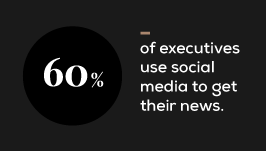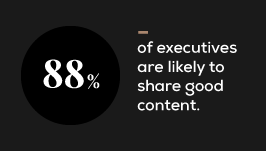Original Research: Rebranding Attracts New Customers
Original research by The Grossbauer Group indicates the top 5 rebranding results are:
2. Better promotion of new services, products, or capabilities
3. Achieved marketing goals
4. Media and/or social media mentions are up
5. Increased revenues
See the full Rebranding Study to discover more about why organizations rebrand and how they rate their success.
Do you own your digital assets?
As an organization, you may have many digital accounts, from Twitter and Facebook to Google Analytics. If an employee sets up these online assets through a personal account, and then leaves the company without giving you access—or the passwords—you can be left in the dark.
Not only will you have no access to your company assets, you have no control over what a former employee may do with the accounts.
Why does this happen? According to the policies of many social media companies, your company doesn’t own the accounts if they were created using an employee’s personal account. Even if you report the account as yours, it may not lead anywhere. Many online channels are hesitant to get involved with personal disputes.
Learn how to ensure you own your digital accounts at grossbauer.com.
Social Media in the C-Suite
If you’re targeting executives, here’s what you need to know about their social media habits.



Web Accessibility: Understanding Screen Readers
Aiming for Web accessibility compliant with WCAG 2.0 A and AA standards? Here’s a quick guide for understanding how screen readers factor in. Read Web Accessibility: Understanding Screen Readers.
Google Chrome to Disable Autoplay Video
Google continues to help guide the user experience on the Web. If your webpage has an autoplay video, you may want to know this: Chrome version 64, scheduled to roll out in January 2018, will block any automatically played video that has sound. Autoplay videos with audio will be automatically paused, and wait for the user to push play.
However, there are exceptions to the “autoplay pause” feature. Based on a user’s web interactions, Chrome will apply logic. For example, if a user has saved or bookmarked a certain page, Chrome will allow it to autoplay. Additionally, pages related to content with which the user regularly interacts will also be allowed to autoplay.
